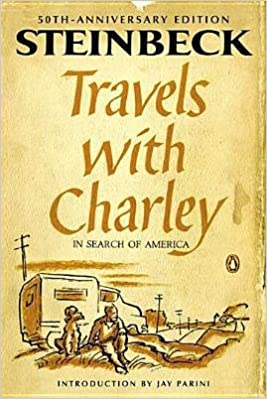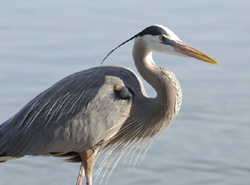Like me, you likely read John Steinbeck’s Travels with Charley when you were in high school. If so, you probably don’t recall anything like the following excerpt from a letter to his long-time friend and publisher, Pascal Covici. The letter was written in July, 1961. Steinbeck was in the process of writing his travelogue at that time. The book was published in 1962.
His trip around the country had taken place in 1960 – the beginning of the decade of “The Sixties,” – don’t forget. He was already in declining health, and he wanted to see his country one last time. He died in 1968, at the age of 66.
I wonder what Mr. Steinbeck would have to say if he took a similar trip today. Here is the passage, today’s food for thought.
“Thinking and thinking for a word to describe decay. Not disruption, not explosion but simply rotting. It seemed to carry on with a weary inertia. No one was for anything and nearly everyone was against many things. Negro hating white. White hating negroes. Republicans hating Democrats although there is little difference.
“In all my travels I saw very little real poverty. I mean the grinding terrifying poorness of the Thirties. That at least was real and tangible. No it was a sickness, a kind of wasting disease. There were wishes but no wants. And underneath it all the building energy like gasses in a corpse. When that explodes, I tremble to think what will be the result. Over and over I thought we lack the pressures that make men strong and the anguish that makes men great. The pressures are debts, the desired for more material toys and the anguish is boredom. Through time, the nation has become a discontented land. I’ve sought for an out on this – saying it is my aging eyes seeing it, my waning energy feeling it, my warped vision that is distorting it, but it is only partly true. The thing I have described is really there. I did not create it. It’s very well for me to write jokes and anecdotes but the haunting decay is there under it.
“Well, there was once a man named Isaiah – and what he saw in his time was not unlike what I have seen, but he was shored up by a hard and durable prophecy that nothing could disturb. We have no prophecy now, nor any prophets.”
I offer this passage to you, dear reader. I offer it without comment. However, I commend for your reading my source for this: Steinbeck: A Life in Letters. John Steinbeck didn’t care much for the telephone, and he didn’t have email or social media. So he wrote, longhand. And this collection of his letters is superb.
Finally, I also suggest that it would be nice if we all could take up, once again, the nearly lost art of letter-writing. What was the last time received a letter, one composed especially and only for you? Wasn’t it a nice feeling to get it? Maybe, as 2021 wanes and the New Year approaches, you could take the time to write one to someone you’ve not seen or spoken to lately. I assure you, it will be appreciated.




